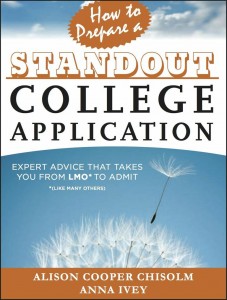Sign up for my FREE parent tips email and get my FREE Ebook on college financing!

What could be easier than winning a scholarship and you didn’t even have to write an essay and/or fill out a long application? There isn’t. The rewards may not be as big as those long, involved essay scholarships, but 10 $1000 scholarship add up to $10,000. That’s not chump change! Most of them just take a few minutes to enter:
Every week, Zinch gives away $1000 to one high school or college student. Zinch believes strongly in education and works hard to connect students with their best-fit colleges. But they also know that it can be expensive which is they award this scholarship this easy to enter scholarship. Just a short form and answering a question in three sentences and you could add $1000 to your college fund.
There are two requirements for entering this $1000 scholarship program:
- Apply online by registering at College Week Live’s website (http://www.collegeweeklive.com). Limit one (1) Application per person. Application includes complete name, contact, and high school information as required on the CollegeWeekLive registration form.
- Additionally, applicants must login and participate in a CollegeWeekLive virtual event held between the first and last day of the month by no later than the last day of any given month at 11:59 PM EST to be eligible for that month’s scholarship. Participation requires visiting at least 3 college booths.
The $2,000 “No Essay” Scholarship is open to all students and those planning on enrolling within 12 months. The monthly winner will be determined by random drawing and then contacted directly and announced on our Facebook page. One entry per person, but you can come back each month to try again. High schoolers, adults looking to head back to school, current college students and anyone else looking to attend college or graduate school within 12 months.
The ScholarshipPoints program is free to join and provides you with the opportunity to win thousands of dollars in scholarships each month. Members earn points by doing what they already do online: shopping, reading, gaming, searching, quizzes, polls, and more. The more you do – the more you earn – the better your chance to win a scholarship! Register today and you could be the next $10,000 scholarship winner!
If you’re ready to hop on your phone and start applying, one of your first stops should be DoSomething.org’s scholarship listing. The long-standing youth activism organization offers a rotating array of scholarship competitions that usually require nothing more than a text message to enter. Deadlines and programs vary, so it’s worth following @DoSomething on Twitter for updates.
What could be easier than uploading your favorite photo? What does college look like through your camera lens? Show University Language Services for a chance to win a $500.00 college scholarship! As a prospective student making college campus visits, you have a lot to take in: the dorms, the classrooms, the cafeteria, the football stadium … not to mention the atmosphere! Whatever it is, submit a photo you’ve taken, along with a description of between 100-200 words on why that photo represents what college means to you.
Tell Cappex about yourself and don’t hold back in a simple form to be eligible for the $1,000 A GPA Isn’t Everything Scholarship. This scholarship opportunity will be available at any college or university. Applications accepted for a limited time so apply now.
GotChosen is offering a recurring monthly scholarship to help college students. The GotChosen $1000 Every Month Scholarship is easy and free to enter. The scholarship is not awarded based on academic achievement or financial need. Instead, a new winner is selected every month by a random drawing.
Open to all fields of study, the $1,000 must be used for educational expenses, this includes: tuition, fees, books, supplies, equipment required for study, or towards repayment of outstanding student loans. Virtually anyone 18 years old or older is eligible to participate.
Students are asked to submit an original “creation” through an image which expressed what they hope to achieve in their personal and professional life after college. Entries include photographs, poems. essays. collages, drawings, paintings and other imaginative pieces. The entry needs to communicate: This is how I “Frame My Future”, and include a brief accompanying description. Four winners will receive a $1000 scholarship.
ScholarshipDetective is a free scholarship search engine. To celebrate their launch we are awarding two $1,500 college scholarships. To enter just complete this application including a 140 character or less statement on how you plan to use the scholarship money. Deadline for entry is December 31, 2013.
Don’t delay. Many of these entry deadlines are within the next few months. 10 entries mean 10 chances to win. And remember: you can’t win if you don’t enter!
 Students attending a university find many new activities to participate in and organizations to get involved with. For some students, just participating and enjoying the camaraderie is enough, but for those who want to take the bull by the horns and act as leaders or managers, there is no better place to start than in college. Getting experience as a leader not only looks good on a resume, but also helps you to understand what types of decisions to make in order to better at communicating and motivating others.
Students attending a university find many new activities to participate in and organizations to get involved with. For some students, just participating and enjoying the camaraderie is enough, but for those who want to take the bull by the horns and act as leaders or managers, there is no better place to start than in college. Getting experience as a leader not only looks good on a resume, but also helps you to understand what types of decisions to make in order to better at communicating and motivating others. 








